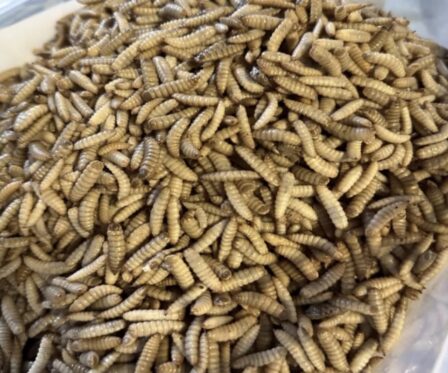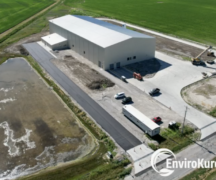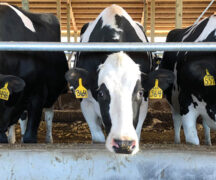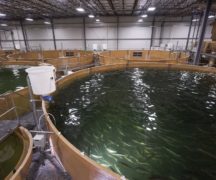By JULIE CARLE
BG Independent News
An Ohio company wants to change the culture around eating insects, at least for now, as a tasty and nutritional treat for dogs.
William Krasner, co-founder of Cincinnati-based Intersect Agriculture, and his business partners believe the black soldier fly as insect protein is a solution for upcycling food waste and turning it into viable sustainably grown nutrients for the $28 billion pet food industry.
“There is a great opportunity in front of us to impact the trajectory of our food system,” Krasner said during the September CIFT Agribusiness Forum. “These are sustainable nutrients with a negative carbon footprint.”
The company is growing black soldier flies, feeding them food waste from sources such as ethanol plants, breweries, distilleries and commercial lettuce operations, and transitioning them to become high-protein, high-fat grubs.
Other companies are doing similar work, especially in countries other than the United States, but Intersect Agriculture “is going beyond just insect-rearing,” Krasner said. “We have devised a really innovative approach that takes the process even further and allows us to be a net-negative agricultural business.”
How does it work?
According to Krasner, at their pilot facility they load leafy, salad greens and black soldier fly larvae into one side. For 15 days the larvae consume the food scraps and exponentially increase their body weight.

“They are super-efficient composters and will compost through 99 percent of the materials and turn into plump grubs,” he said. What’s left are the corpulent grubs and frass or the excrement and the leftover food material that is rich, black soil.
Most companies stop at that point, separate the two, and dry or render the larvae then sell the frass as is. Intersect Agriculture adds value to the frass by heating it to a super-high temperature that burns the organic matter and sequesters the carbon to create biochar and carbon credits.
The biochar can be added to soil to improve water runoff, reduce dependency on chemical fertilizers, and ultimately create a healthier microbiome for long-term soil health. The carbon credits can be sold to companies that want to reach their Environmental, Social and Governance (ESG) goals.
“There is a market that is really well-established, and the industry understands the value they can get out of biochar. It’s a really cool way for us to take what’s already a part of our black soldier fly process and create an additional value stream,” Krasner explained.
The process they have devised uses a unique modular, vertical farming system that includes commercial mushroom farming equipment and prefabricated hoop houses, that allow temperature and humidity to be controlled. The units can be placed close to the food waste source to eliminate transportation.
“On a global scale, the availability of natural resources like land, water, nutrients and energy are outpaced by the growing demand for pet and animal feed, and human nutrients,” he said.
While it might take a long time before people in the U.S. are willing to consume grubs themselves, Krasner said, the company is banking that people will understand that insect proteins are palatable, nutritious, sustainable and hypoallergenic for their dogs and livestock.
Currently, the Association of American Feed Control Officials (AAFCO), the group that approves what can go into agricultural feed, has approved the use in the U.S. of black soldier fly larvae products in foods for adult dogs, chickens and reptiles.
Studies are being conducted on the impact the black soldier fly larvae have on the health of beef, piglets and how much faster they are growing if they are reared on feed from black soldier fly oil instead of corn oil, he added.
“It’s still an emerging market in the U.S., but globally it is a billion-dollar business. We see it as a way to build a more resilient supply chain,” he said.
Their system also addresses issues such as food waste, water runoff and dependency on fertilizers. In Ohio, 40% of food waste ends up in landfills. Farmers are challenged by the availability of nutrients for their crops and livestock.
Spent grain from ethanol plants, breweries and distilleries are underutilized assets that can be fed to provide the nutrients to make the black soldier fly a high-protein, high-fat product.
“We really believe that Ohio can be a leader in this emerging market,” Krasner said. The company’s goal is to work with different organizations in Ohio to advance the work toward more sustainable nutrients with a smaller footprint to feed more people and animals.
They are looking for people, companies or organizations that might be interested in the insect protein industry with expertise in food processing, manufacturing or drying methods, enhanced rendering, engineering, process design, nutrition or insect protein research, he said. More information is available on the company website.





